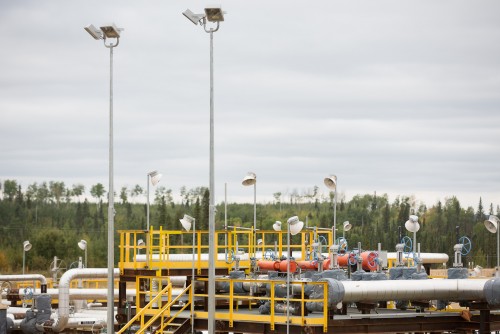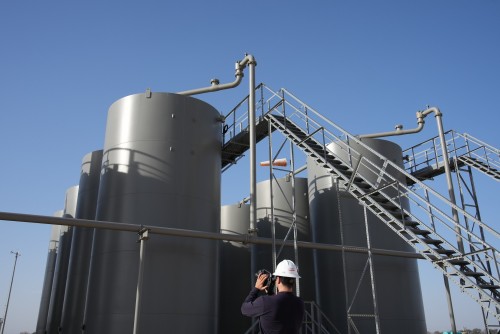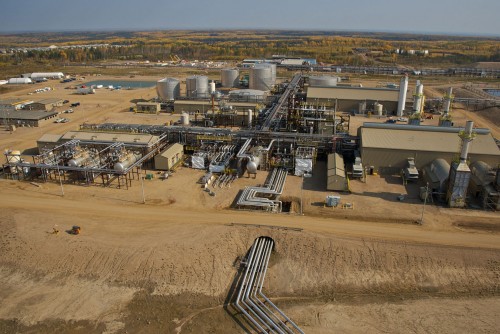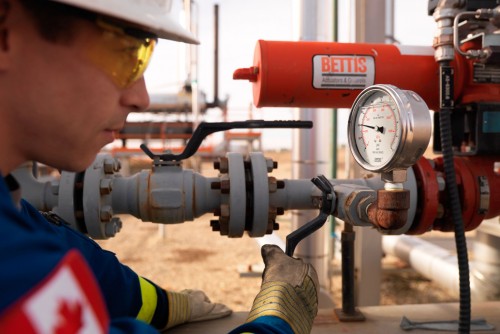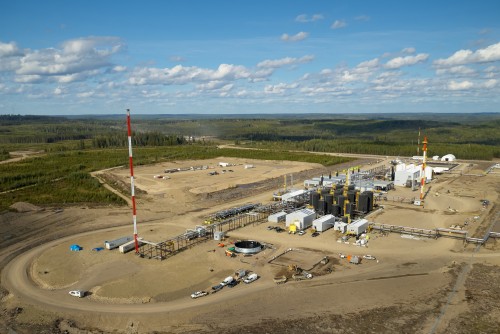Public Policy Engagement

ConocoPhillips supports well-designed climate policy that is practical, equitable and cost-effective in reducing greenhouse gas (GHG) emissions. We support the aim of the Paris Agreement to limit the rise of global average temperatures well below 2 degrees Celsius which is reflected in our Paris-aligned ambition to be a net-zero operational emissions company by 2050.
Proactive Engagement
Climate-related policy action can support an orderly transition to a low-carbon economy, facilitate the development of innovative technology and reduce the overall risks associated with climate. We have been actively engaged in climate-related discussions with policy makers and stakeholders since our first global climate change position was published in 2003. Our approach to public policy engagement on climate change has evolved. However, we remain consistent in our view that market-based solutions at national and global levels, rather than a patchwork of less efficient regulatory approaches, will be most effective in reducing GHG emissions.
Among our efforts, ConocoPhillips is a founding member of the Climate Leadership Council (CLC), an international policy institute founded in collaboration with business and environmental interests to promote a carbon dividends framework in the U.S. as the most cost-effective, equitable and politically viable climate solution. Participation in the CLC provides an opportunity for ongoing dialogue about carbon pricing and framing the issues in alignment with our principles. We are also a member of Americans for Carbon Dividends (AFCD), the education and advocacy branch of the CLC, which focuses on progressing the bipartisan Baker-Shultz Carbon Dividends Plan. Our executive leadership team consistently engages with members of Congress and the Administration to express support for that plan. In 2021, ConocoPhillips was accepted as a Private Sector Partner within the Carbon Pricing Leadership Coalition (CPLC), a global voluntary partnership run by the World Bank to share and expand the evidence base for effective carbon pricing policies. Participation in the CPLC further demonstrates our commitment to carbon pricing and is complementary to our engagement with the CLC.
We have also demonstrated strong engagement with major trade associations to advance climate policy positions that include support for a market-based approach to reduce GHG emissions. To this end, we have shown successful leadership that has yielded positive results and progress within the American Petroleum Institute (API), the Business Roundtable (BRT), the U.S. Chamber of Commerce and others. Our advocacy further addresses methane and flaring regulation, clean fuel or power standards, and sector-specific regulations based on carbon-intensity benchmarks. Publicly communicating our governance processes and the depth of our advocacy efforts is a crucial component of our outreach in addressing stakeholder concerns.
Most trade organizations we participate in have climate change positions aligned to ours. Where they do not, we have continued to offer our viewpoint and attempt to work with them to better align their position with ours. For example, we have worked to influence API, BRT, the U.S. Chamber of Commerce and other organizations to support the direct federal regulation of methane. In addition to actively participating in trade organization position updates, we have also voted against or abstained from supporting specific actions requested by a trade organization if their positions were not aligned with ours. We have also decided not to renew some memberships because of misalignment on a number of policy topics, one of which is climate change.
Read more about our alignment with our associations regarding climate change.
Read more about public policy governance and major trade association memberships.
Effective Policy
Climate change is a global issue which requires global solutions. Economy-wide governmental GHG management frameworks should be linked to binding international agreements comprising the major GHG contributors. Effective climate change policy requires a number of elements:
Integrates energy and climate policy: Climate change policy and energy policy should be coordinated to ensure a diverse and secure supply of affordable energy and avoid overlapping or duplicating existing energy and climate change programs. This must create a level competitive playing field among energy sources and between countries and encourage efficient use of energy.
Promotes innovation: Climate change policy should promote government and private sector investment in energy research and development and match the pace at which new technology can be developed and deployed.
Demonstrates real GHG reductions: It should result in the stabilization of global GHG atmospheric concentrations and foster resiliency to the impacts of a changing climate.
Provides economic certainty: It should provide long-term certainty for investment decisions and avoid undue harm to the economy.
Read more about our climate change public policy principles.
Methane Policy
In the absence of a carbon price in the U.S., the economy-wide direct regulation of methane would be effective. We support well-formulated federal regulation of methane emissions from oil and gas exploration and production if that regulation:
- Encourages early adopters and voluntary efforts.
- Incorporates cost-effective innovations in technology.
- Supports appropriate state-level regulations.
Climate Change Public Policy
We believe that effective climate change policy must be aligned with the following principles:
- Recognize that climate change is a global issue which requires global solutions. Economy-wide governmental GHG management frameworks should be linked to binding international agreements comprising the major GHG contributors.
- Result in the stabilization of global GHG atmospheric concentrations.
- Coordinate with energy policy to ensure a diverse and secure supply of affordable energy.
- Utilize market-based mechanisms rather than technology mandates.
- Create a level, competitive playing field among energy sources and between countries.
- Avoid overlapping or duplicating existing energy and climate change programs.
- Provide long-term certainty for investment decisions.
- Promote government and private sector investment in energy research and development.
- Match the pace at which new technology can be developed and deployed.
- Encourage efficient use of energy.
- Foster resiliency to the impacts of a changing climate.
- Avoid undue harm to the economy.


